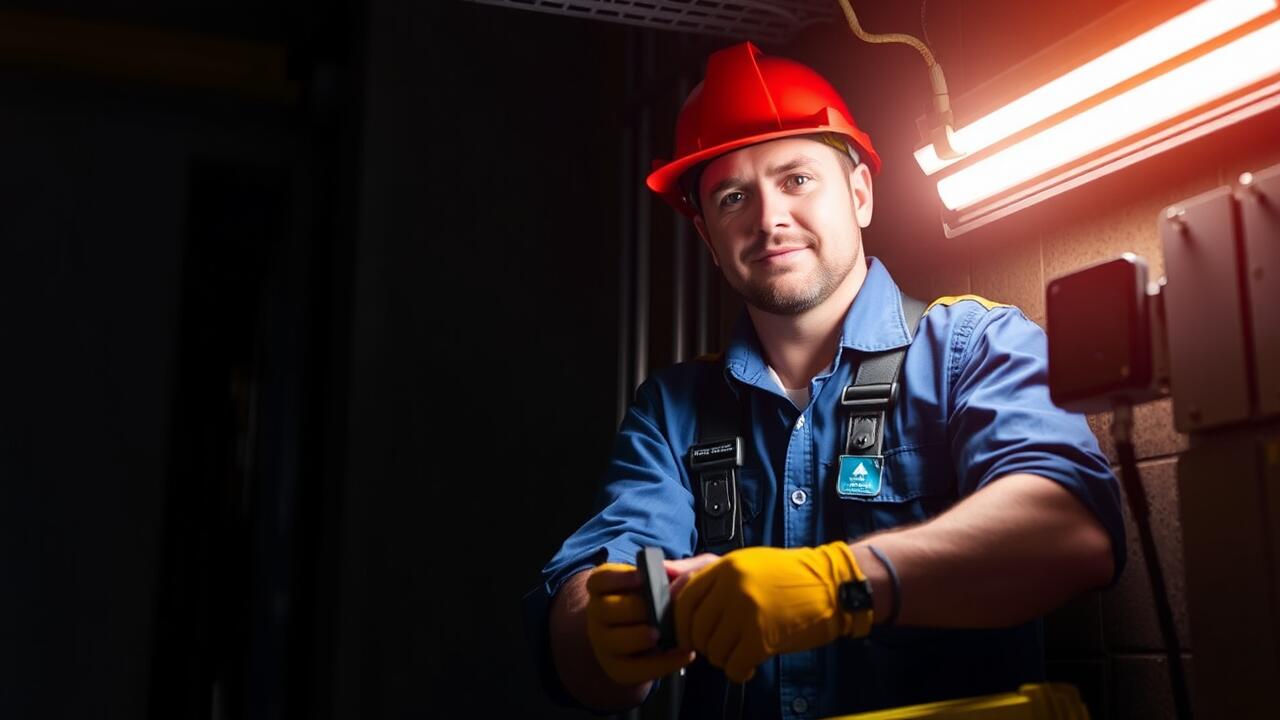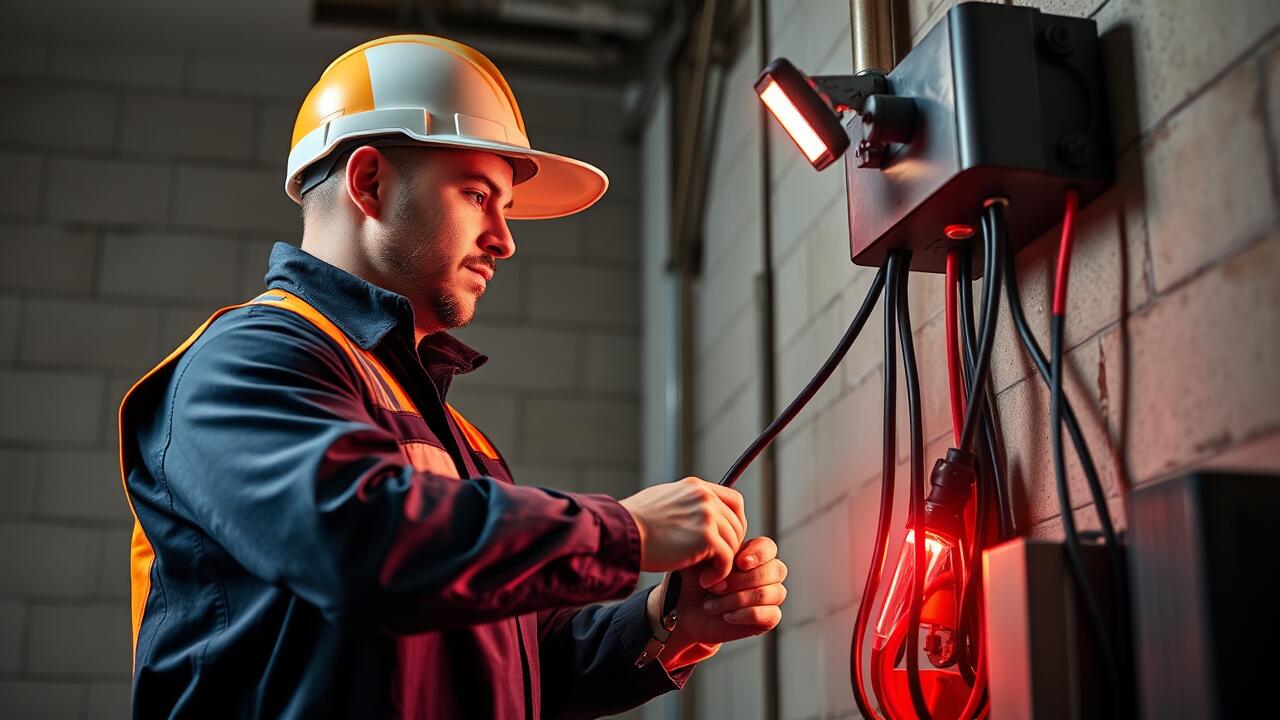
Choosing the Right Replacement Circuit Breaker
When selecting a replacement circuit breaker, it’s crucial to understand the specifications of your current panel. Consider the amperage rating that matches the needs of your home, as well as the voltage type required to ensure compatibility. Different breakers serve varied purposes, including standard residential use and specialized needs for specific appliances. Researching brands and reading reviews can help you choose a reliable product that will enhance the safety and efficiency of your electrical system.
In urgent situations, consulting a qualified professional becomes essential. If you're uncertain about your choice or installation process, seeking advice from an Emergency Electrician in Third Ward, Houston can provide peace of mind. Their expertise ensures that you choose the right breaker and handle the installation safely. A licensed electrician can also guide you in avoiding common pitfalls that may arise during the replacement process, ensuring that your home’s electrical system operates effectively and without risk.
Factors to Consider
When selecting a replacement circuit breaker, it is essential to consider the amperage rating of your electrical system. The new breaker must match the existing panel's specifications, as using a breaker with a higher amperage can pose significant safety risks. Compatibility with the current electrical load is critical to ensure optimal performance and to prevent potential hazards. Consulting with a licensed electrician can help you assess the appropriate size and type required for your specific needs.
Another important factor is the type of circuit breaker. There are various types available, including standard breakers, dual function breakers, and ground fault circuit interrupters (GFCIs). Each type serves different purposes within your electrical system. Seeking the advice of a qualified professional, like an Emergency Electrician in Third Ward, Houston, can provide valuable insights into which type will best suit your home’s needs. Ensuring that you choose the right breaker can lead to improved efficiency and increased safety in your electrical system.
Cost Factors for Circuit Breaker Replacement
The cost of replacing a circuit breaker can vary based on several factors, including the type of breaker being installed and the complexity of the electrical system. Standard residential circuit breakers are generally more affordable, while specialized circuit breakers designed for specific applications or high-demand areas may come at a premium. Additionally, labor costs can fluctuate depending on the electrician’s experience and local market rates.
When budgeting for replacement, it is advisable to account for both materials and installation costs. If skilled assistance is required, hiring a licensed electrician ensures proper installation and compliance with safety regulations. In cases of urgent need, reaching out to an Emergency Electrician in Third Ward, Houston can expedite the process, but this may also incur higher costs due to the nature of emergency services. Overall, being aware of these cost factors can help homeowners plan their budgets more effectively.
Budgeting for Installation and Materials
When budgeting for the installation and materials of a circuit breaker replacement, it's essential to account for various costs that can impact your financial plan. The price of the circuit breaker itself can vary significantly based on the brand, type, and amperage. There are also costs associated with any additional materials needed, such as wiring, connectors, or mounting hardware. Labor costs should not be overlooked, as hiring a qualified technician will ensure the installation is up to code and safe. In cases of urgency, contacting an Emergency Electrician in Third Ward, Houston, can add extra expenses due to the immediate response required.
It's also wise to set aside a budget for unforeseen issues that may arise during the installation process. Older homes may have wiring or panel issues that require repairs before a new breaker can be installed. These potential complications can lead to increased costs and should be factored into your overall budget. By thoroughly assessing all aspects of the project, homeowners can better prepare for the financial commitment required for a successful circuit breaker replacement.
Common Mistakes in Circuit Breaker Replacement
One common mistake when replacing circuit breakers is selecting the wrong amperage rating. Choosing an amperage that is either too high or too low can lead to circuit failure or equipment damage. It is essential to review the electrical load and match the new breaker to the specifications of the system. Consulting with professionals can help prevent this error and ensure that the new breaker is appropriate for the application.
Another frequent oversight is neglecting to properly turn off the main power before starting the replacement process. This can result in serious electrical shocks or even worse accidents. Always take precautions by wearing appropriate safety gear and using insulated tools. For those uncertain about the replacement process, enlisting the help of an Emergency Electrician in Midtown, Houston, can provide expert guidance and minimize risks.
Avoiding Costly Errors
When replacing a circuit breaker, many homeowners underestimate the importance of proper sizing and compatibility. Using the wrong type can lead to serious issues, including circuit overloads or even fire hazards. Ensuring the new breaker matches the existing system’s specifications is crucial. Consulting with a qualified technician can avoid these mistakes and ensure safety in your home.
Another common error occurs when homeowners attempt DIY replacements without sufficient knowledge. Miswiring a circuit breaker can create not only functional problems but also pose severe safety risks. Hiring an Emergency Electrician in Third Ward, Houston can provide the expertise needed to navigate the complexities of circuit types and installation procedures, protecting both your investment and your home.
FAQS
How do I know when to replace my circuit breaker?
You should consider replacing your circuit breaker if you notice frequent tripping, signs of overheating, unusual smells, or if it is outdated and no longer meets your electrical needs.
Can I replace a circuit breaker myself?
While it is possible to replace a circuit breaker yourself if you have experience with electrical systems, it is generally recommended to hire a licensed electrician to ensure safety and compliance with local electrical codes.
What are the signs of a faulty circuit breaker?
Signs of a faulty circuit breaker include frequent tripping, visible damage or burn marks, a buzzing sound, or difficulty resetting the breaker.
How much does it typically cost to replace a circuit breaker?
The cost to replace a circuit breaker can vary widely based on the type of breaker, labor costs, and any additional materials needed, but it typically ranges from $100 to $300.
Is it necessary to upgrade to a higher amperage circuit breaker?
Upgrading to a higher amperage circuit breaker may be necessary if you are adding new appliances or devices that require more power. However, it is essential to consult with an electrician to ensure your wiring can handle the increased load safely.



